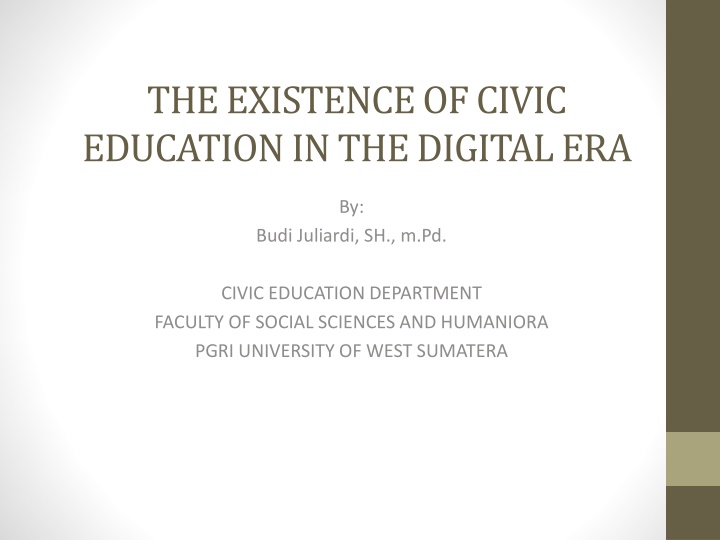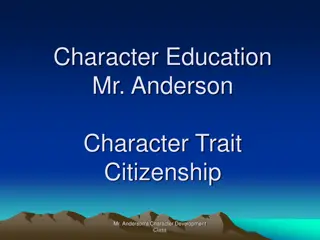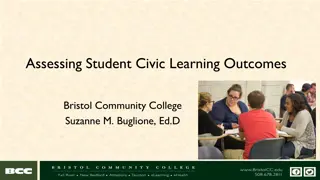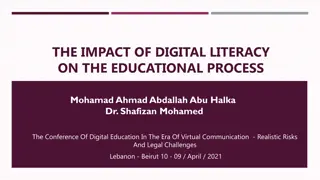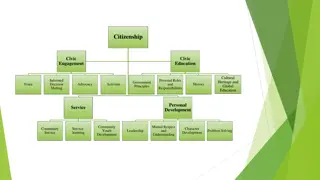The Role of Civic Education in the Digital Era
Civic education plays a crucial role in shaping students' character and preparing them to be responsible citizens. In today's digital era, educators need to adapt and utilize technology to make learning more engaging and effective. Digital learning offers various advantages, such as enhancing student interest, enabling flexible learning opportunities, and providing access to high-quality resources. By incorporating technology into civic education, teachers can create a more meaningful learning experience for students.
Uploaded on Sep 30, 2024 | 1 Views
Download Presentation

Please find below an Image/Link to download the presentation.
The content on the website is provided AS IS for your information and personal use only. It may not be sold, licensed, or shared on other websites without obtaining consent from the author.If you encounter any issues during the download, it is possible that the publisher has removed the file from their server.
You are allowed to download the files provided on this website for personal or commercial use, subject to the condition that they are used lawfully. All files are the property of their respective owners.
The content on the website is provided AS IS for your information and personal use only. It may not be sold, licensed, or shared on other websites without obtaining consent from the author.
E N D
Presentation Transcript
THE EXISTENCE OF CIVIC EDUCATION IN THE DIGITAL ERA By: Budi Juliardi, SH., m.Pd. CIVIC EDUCATION DEPARTMENT FACULTY OF SOCIAL SCIENCES AND HUMANIORA PGRI UNIVERSITY OF WEST SUMATERA
an overview of character problems in Indonesia Student s Brawl Terrorist Blasphemy
INTRODUCTION Civic education is very important to develop the character of students Civic Education serve as a vehicle for being a good citizen Along with the times, we who have entered the digital era must adapt, including in the field of education
Methods This paper uses field research methods and Library Research
Discussion The times require educators to be able to adapt and use learning materials and media based on technological sophistication This is done so that the educational process becomes more meaningful and liked by students In the Civic Education learning process, teachers must be able to apply technological sophistication in the learning process According to Williams (1999), learning digital can be defined as a large collection of computers in networks that are tied together so that many users can share their vast resources'. The definition of digital learning referred to by William is: includes aspects of hardware (infrastructure) in the form of a set of computers that are interconnected with each other and have the ability to transmit data, whether in the form of text, messages, graphics, video or audio
The advantage of digital learning is that it is a fun medium, thereby generating student interest in the programs digital. Learners who study well will quickly understand computers or can develop rapidly advanced computer skills required, by accessing the Web. Therefore, students can learn anywhere at any time. In addition, digital learning using technology to strengthen students' learning experiences using a combination of tools and practices, including, online and formative assessments; increased focus and quality of resources and teaching time; online content; and technology applications.
Closing Digital learning is a learning practice that uses technology effectively to strengthen the learning experience of students who emphasizes high-quality instruction and provides access to content that challenging and interesting, feedback through formative assessment, opportunities to study anytime and anywhere, and individual instructions to ensure all learners reach their full potential
